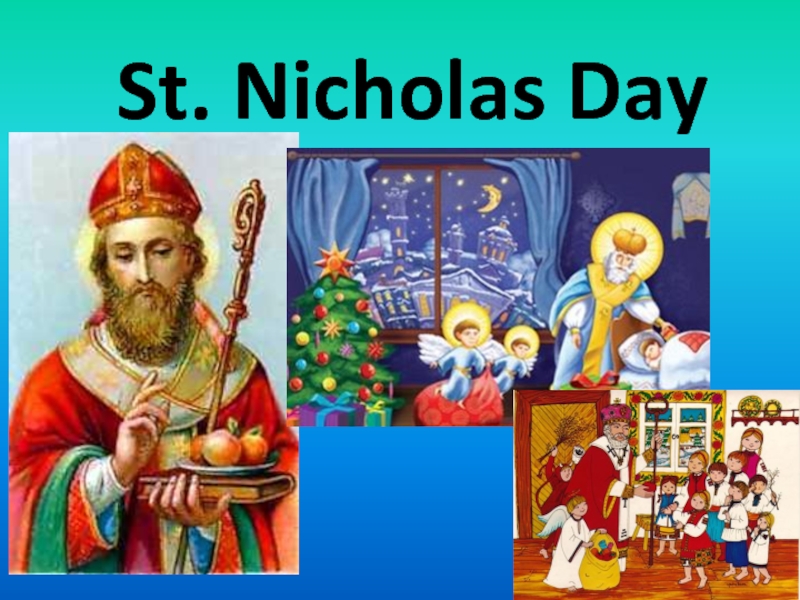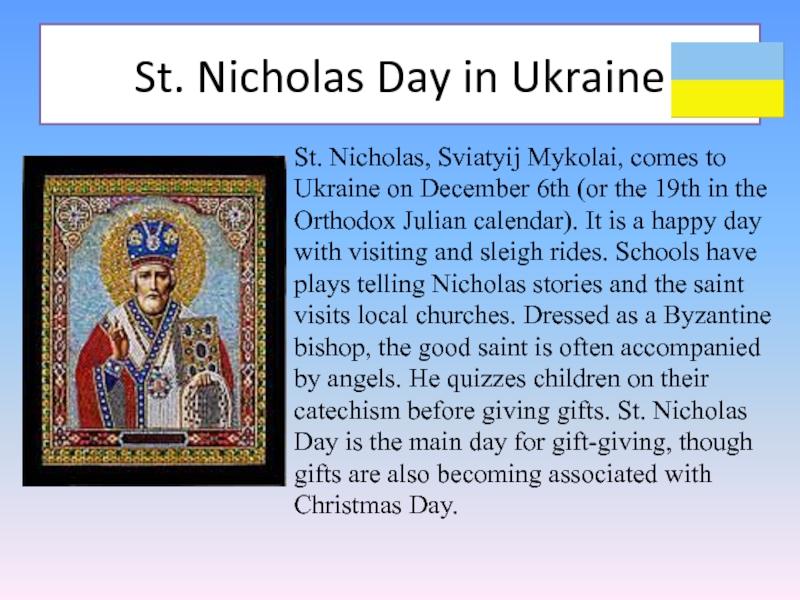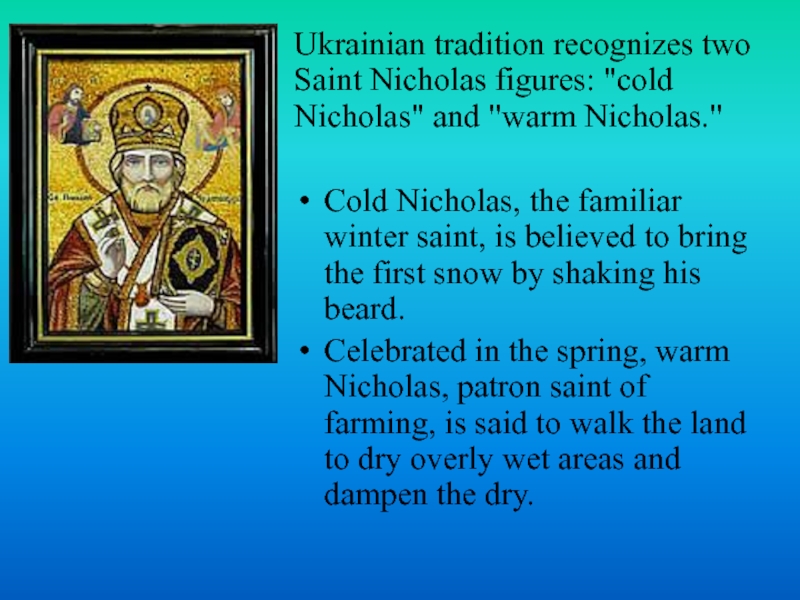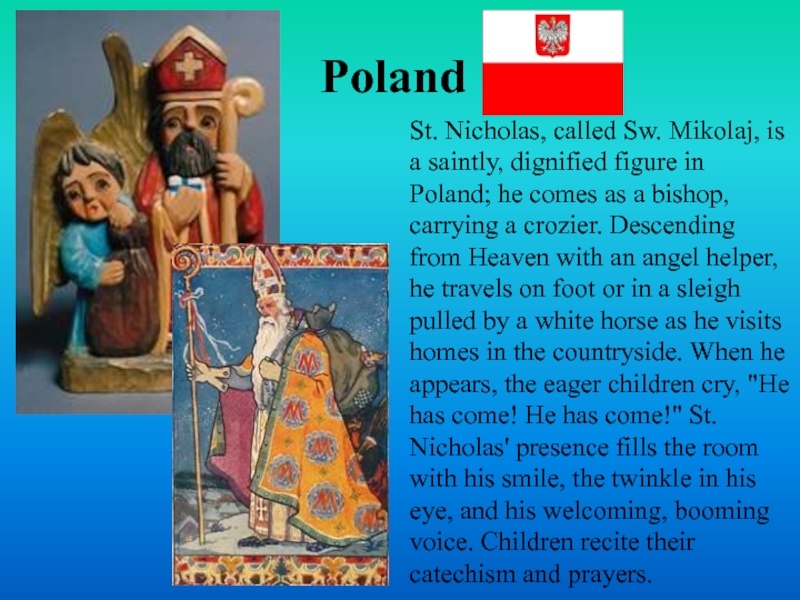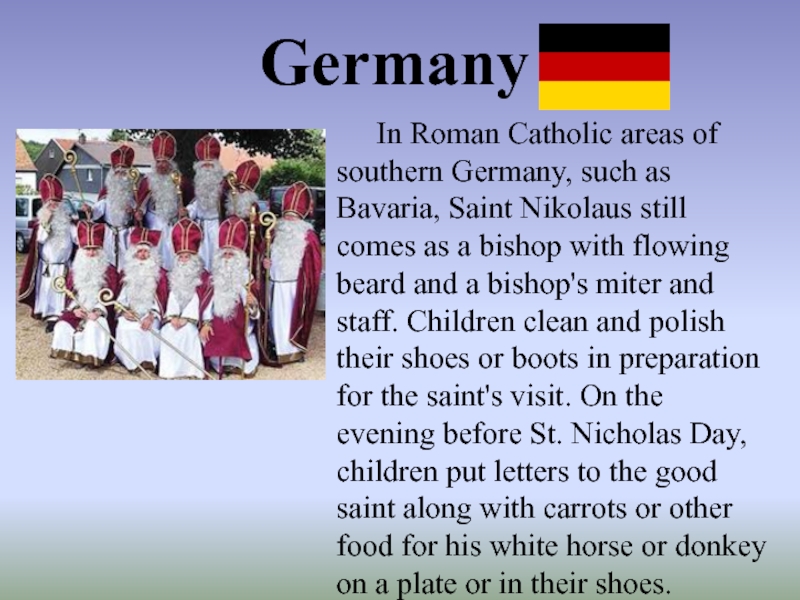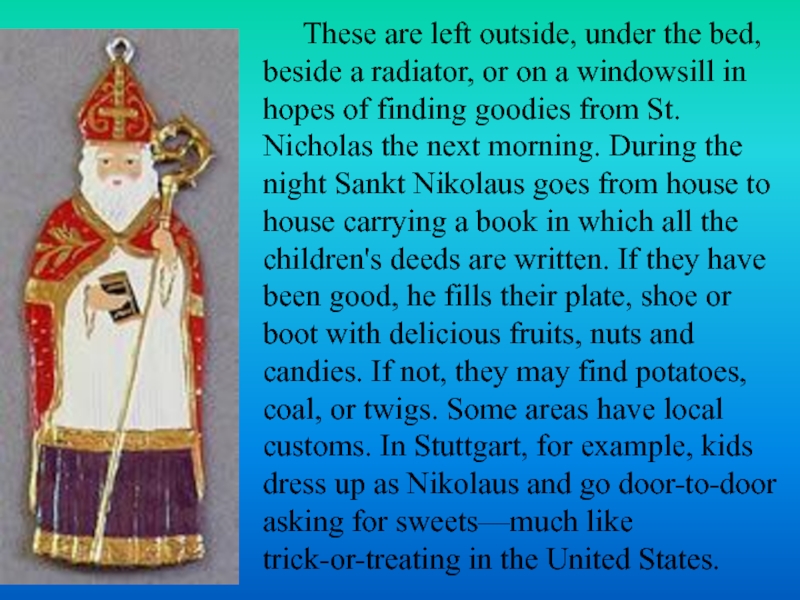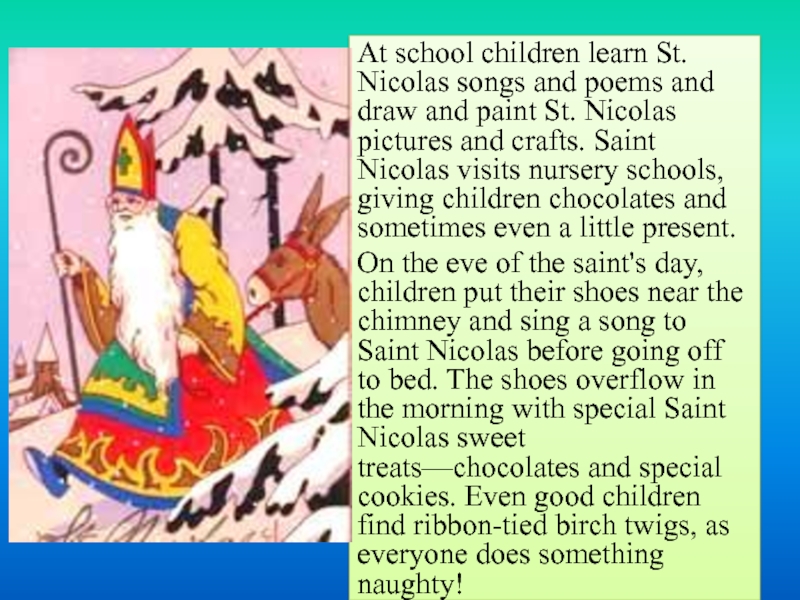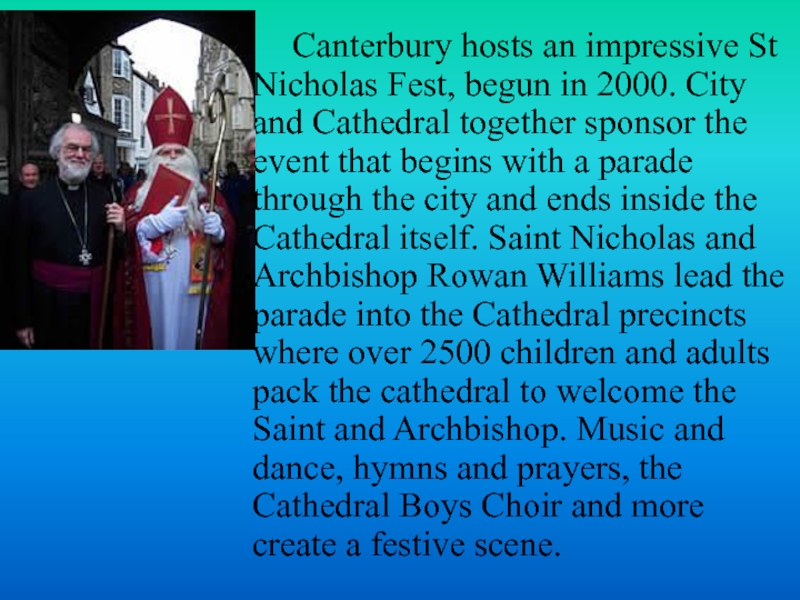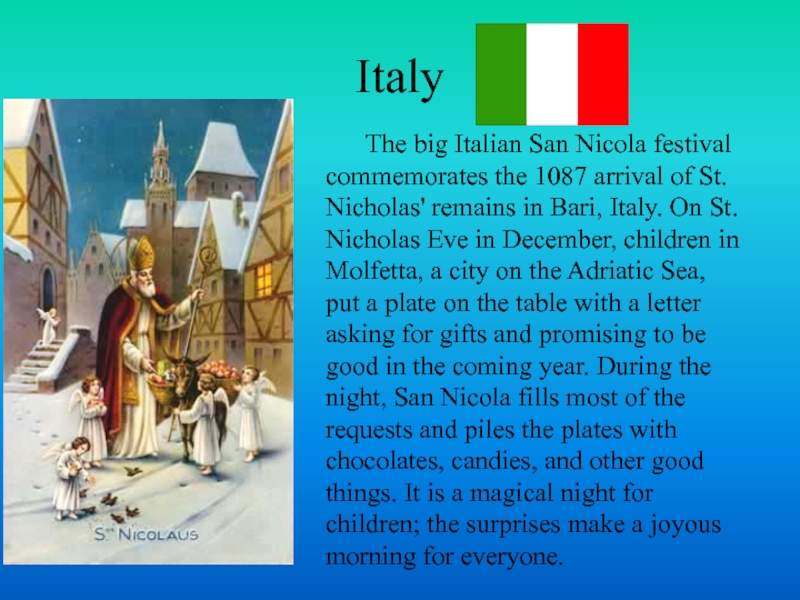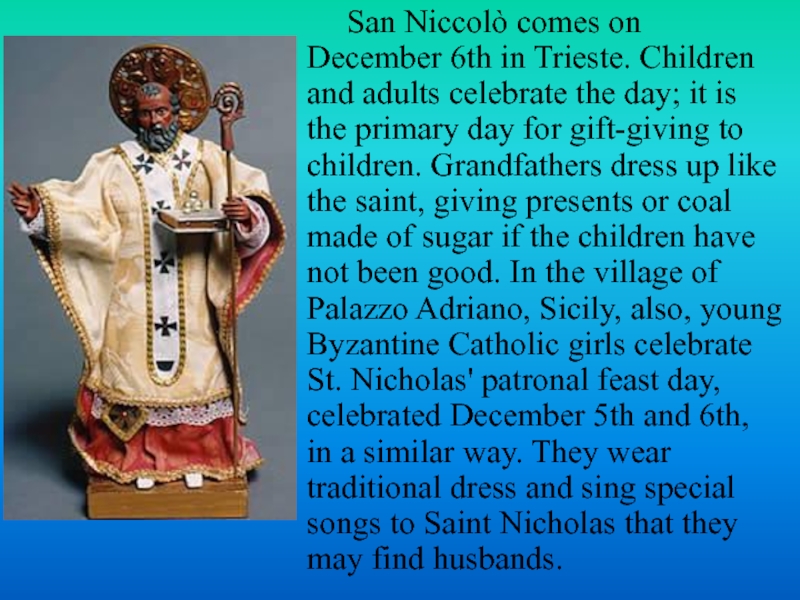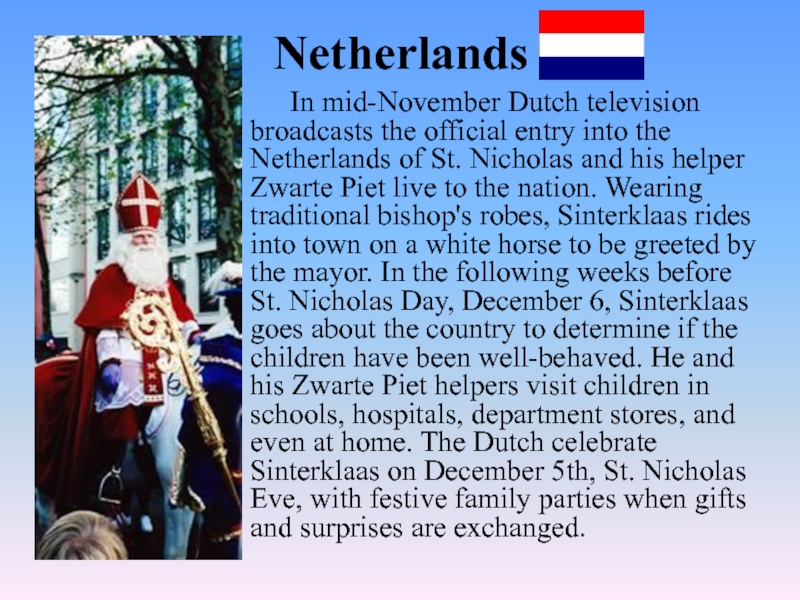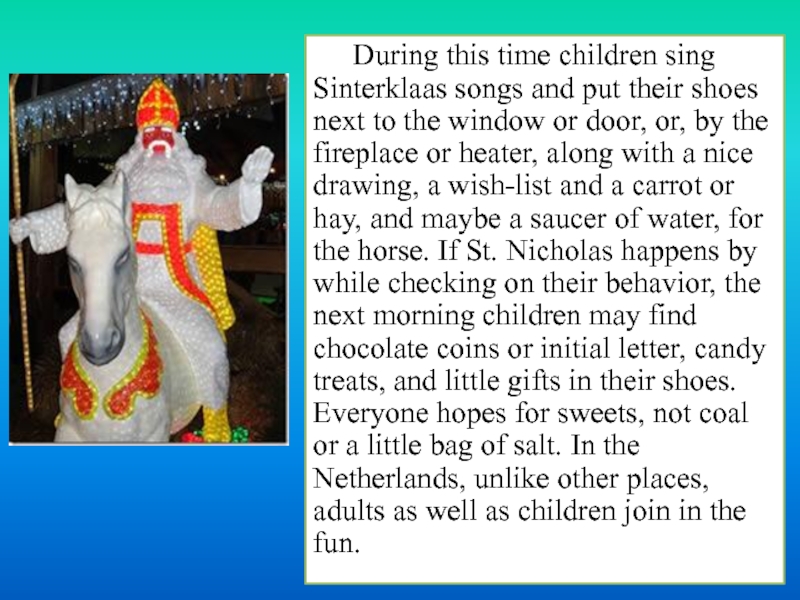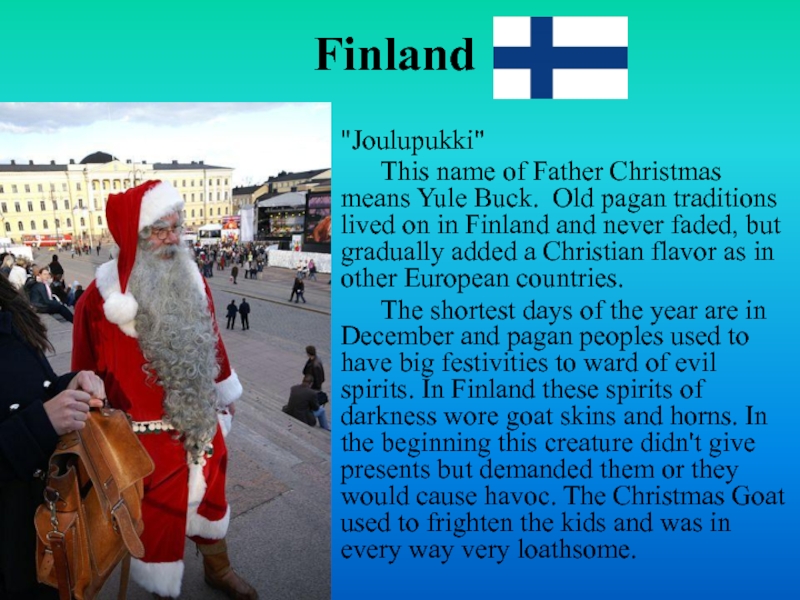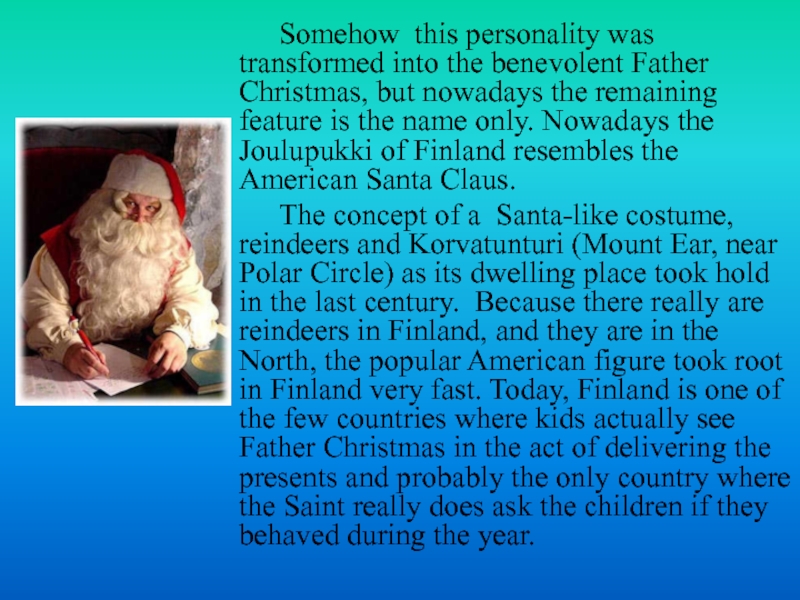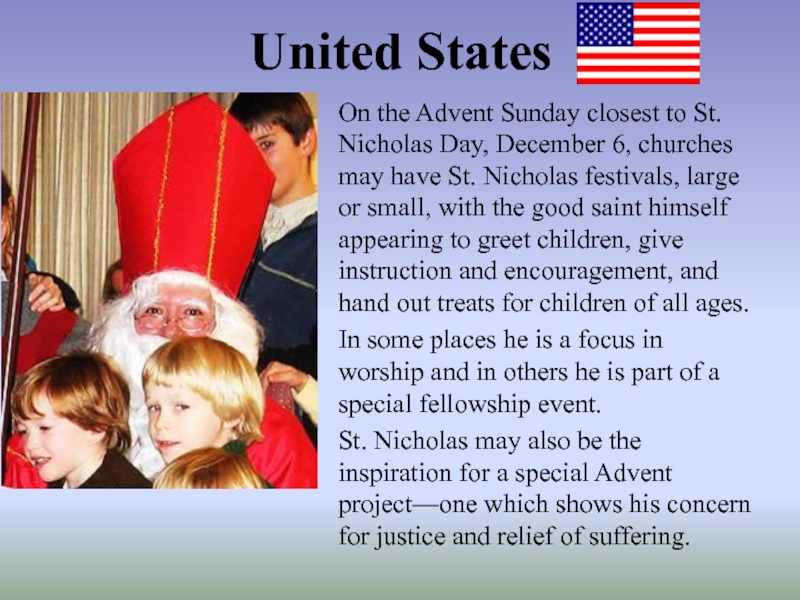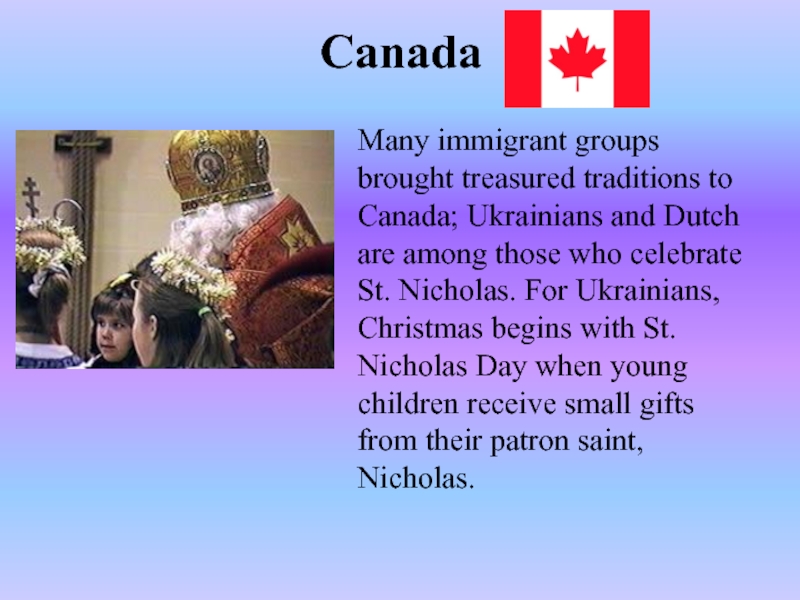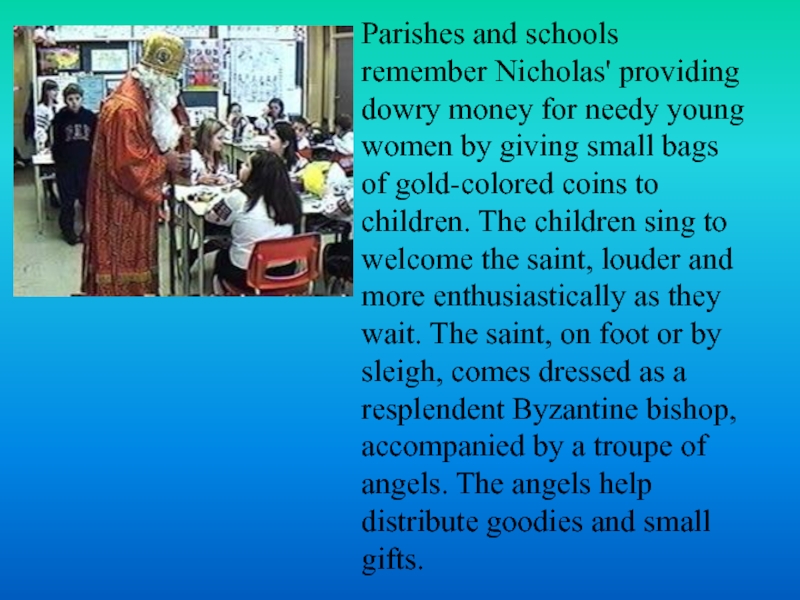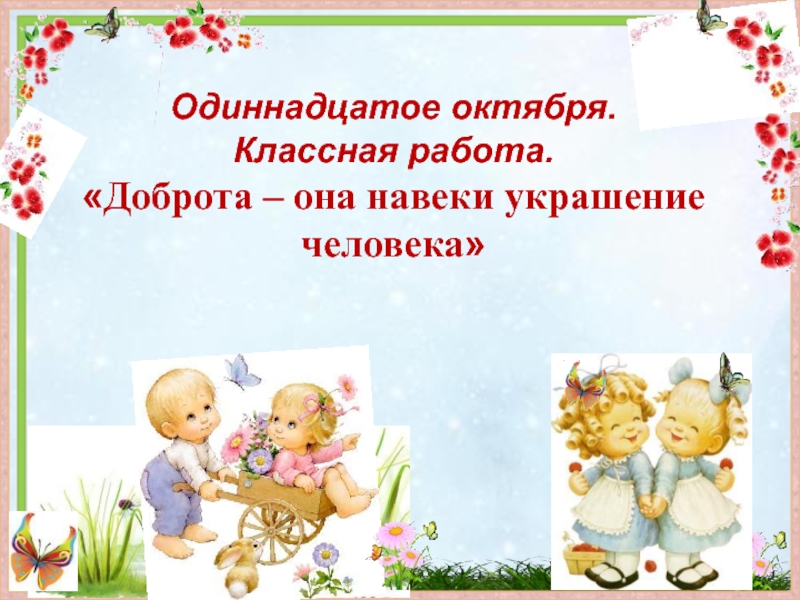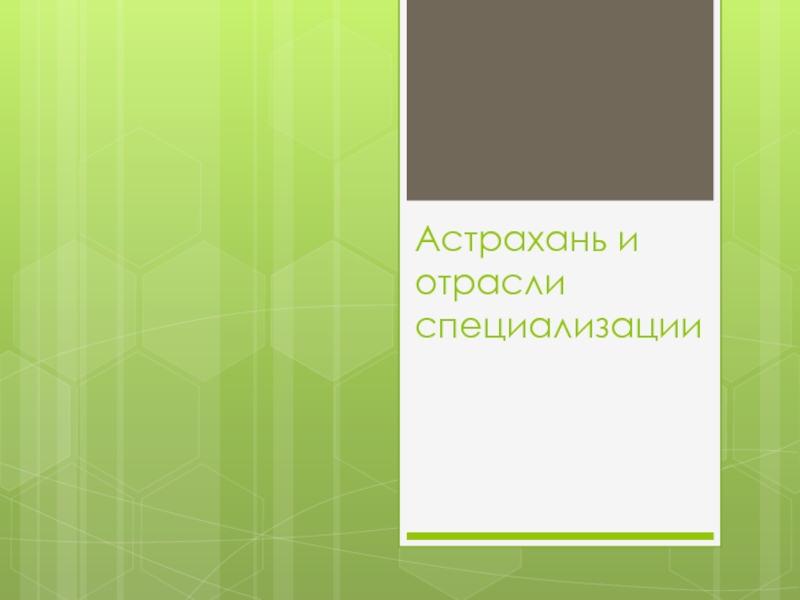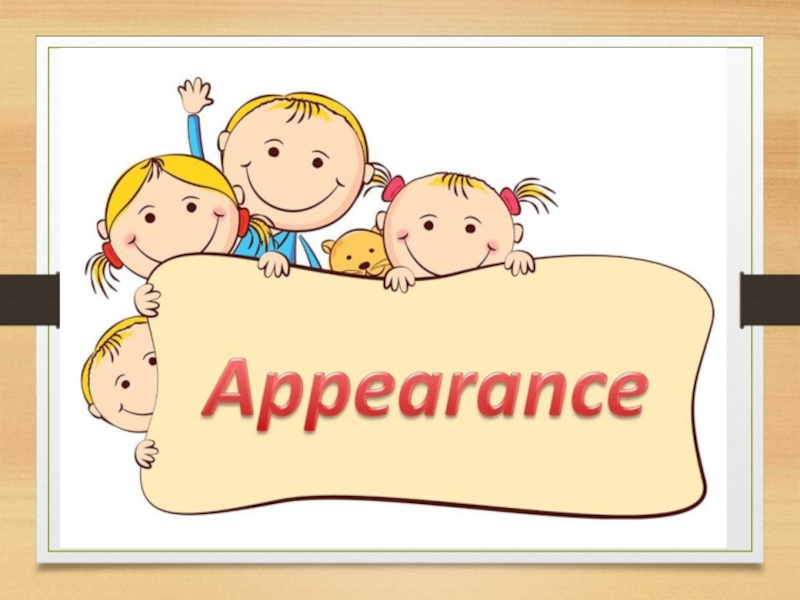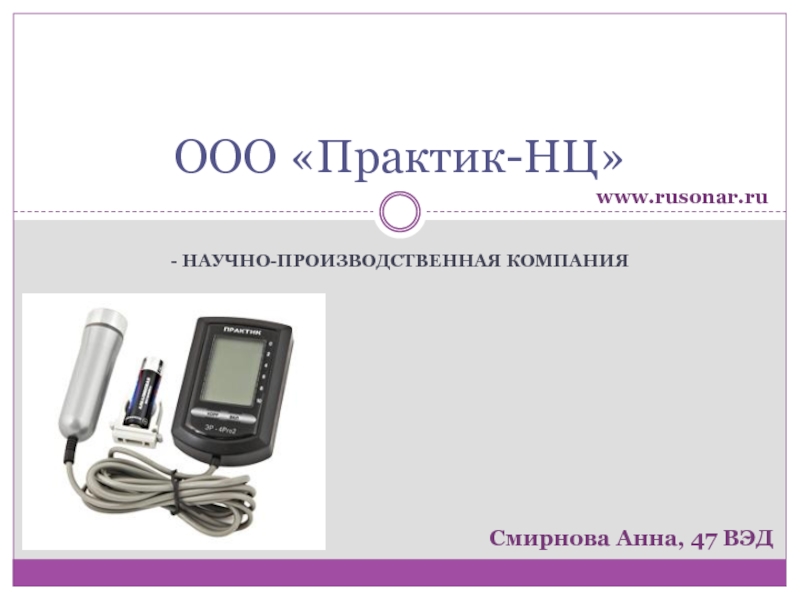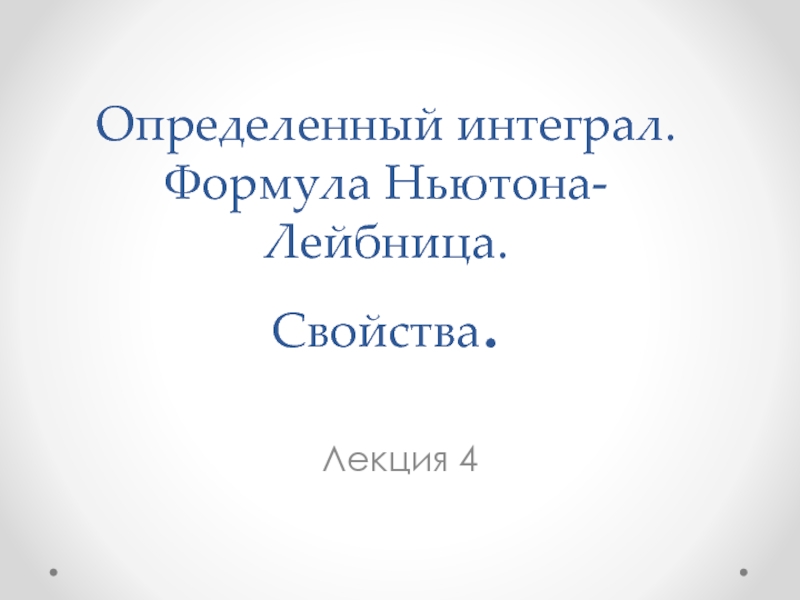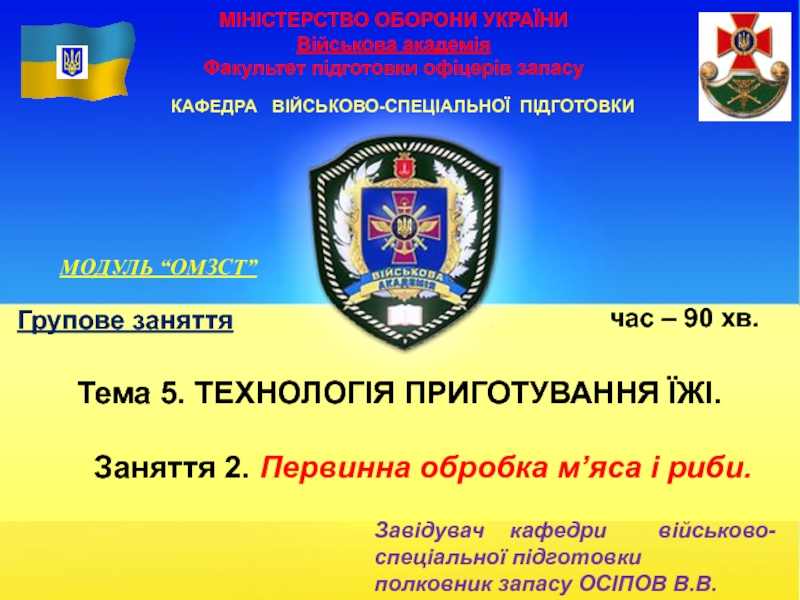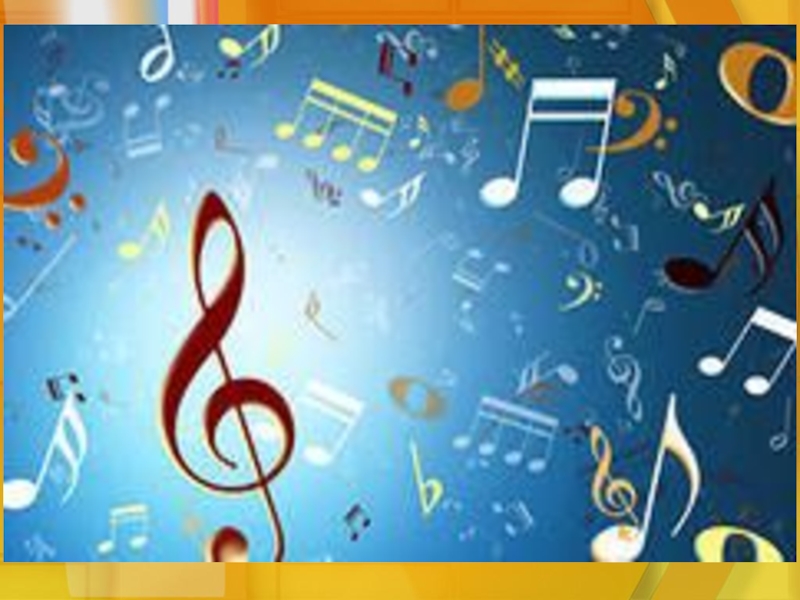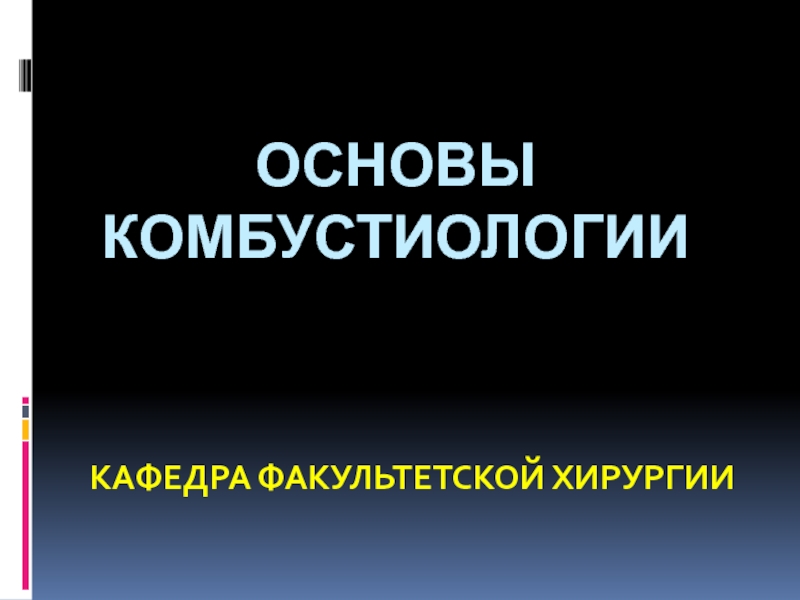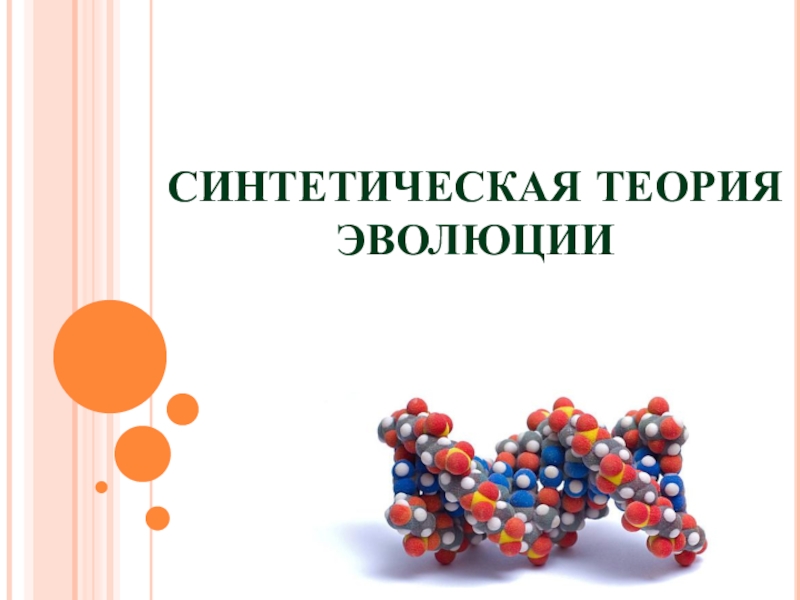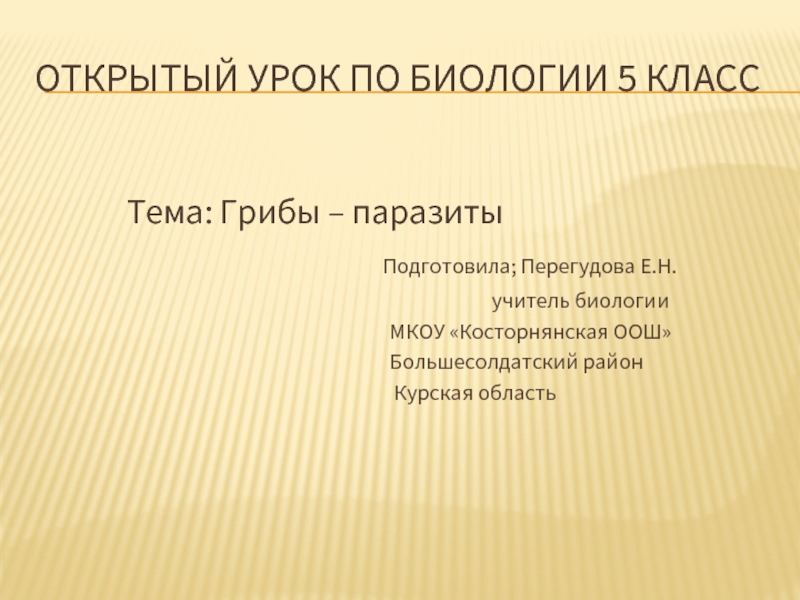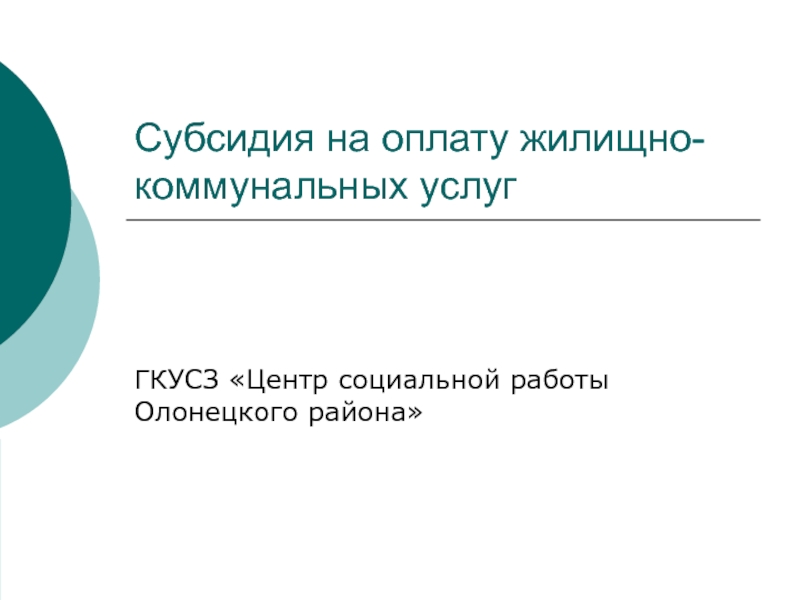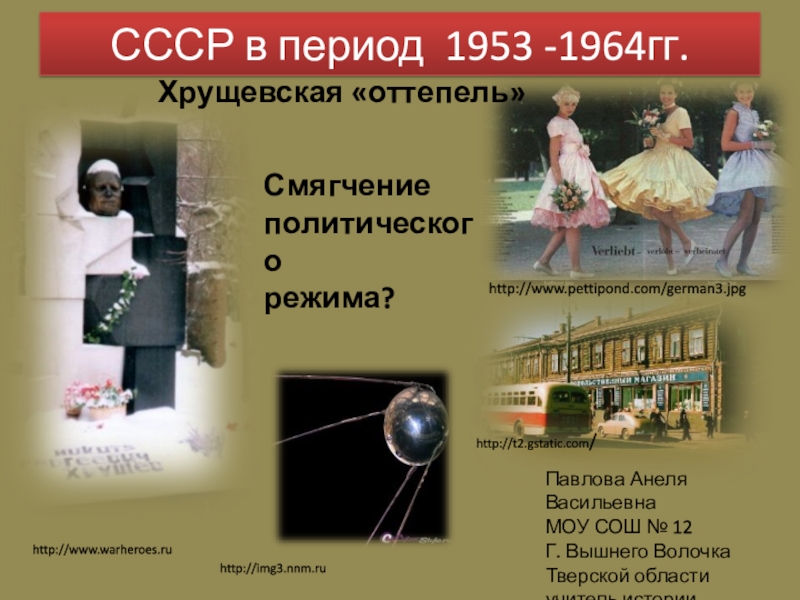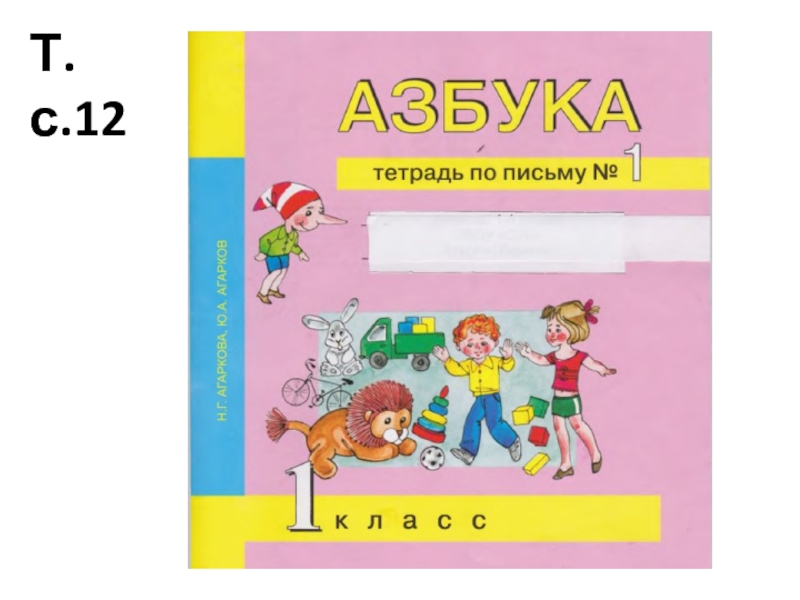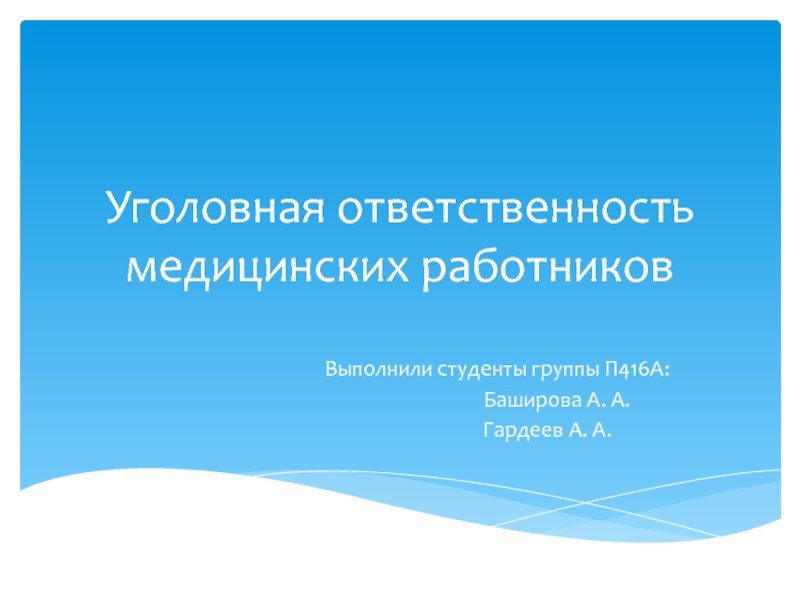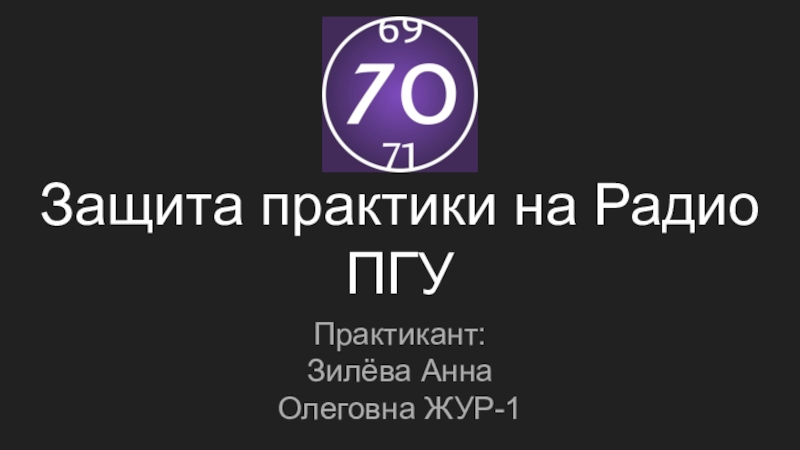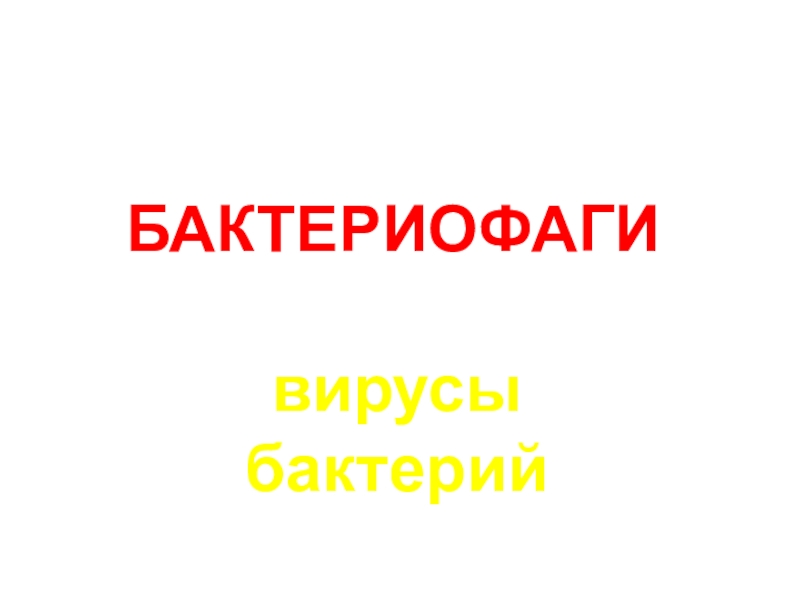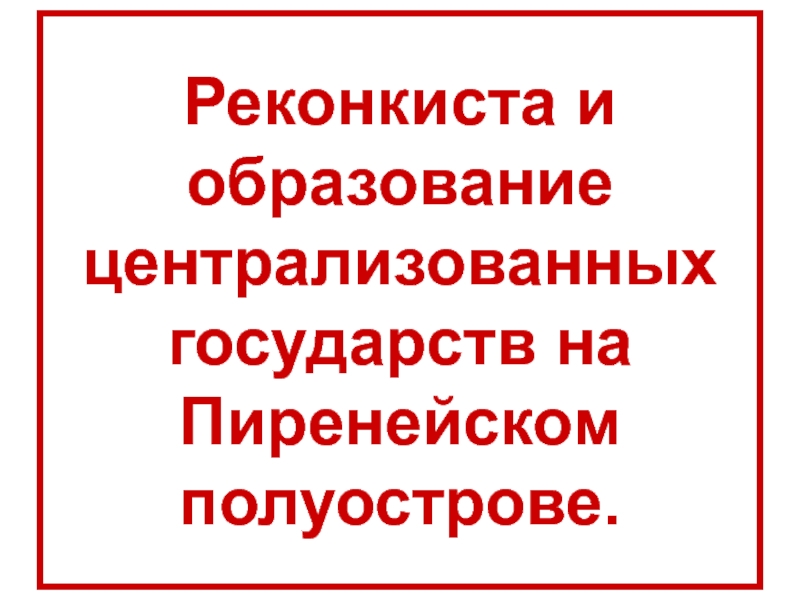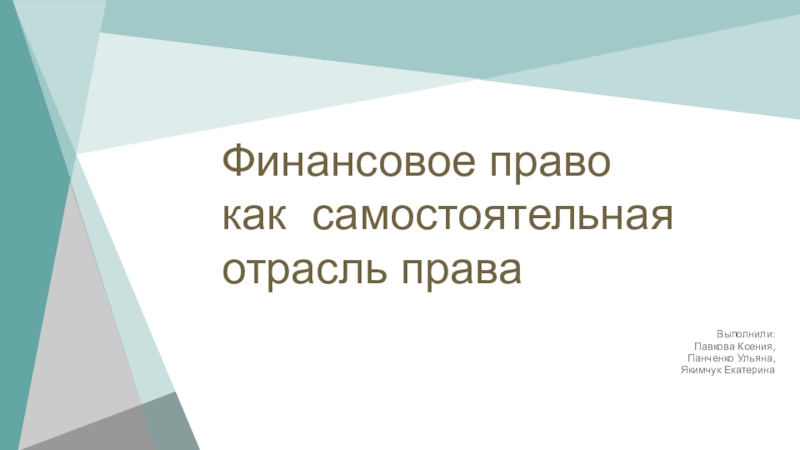Разделы презентаций
- Разное
- Английский язык
- Астрономия
- Алгебра
- Биология
- География
- Геометрия
- Детские презентации
- Информатика
- История
- Литература
- Математика
- Медицина
- Менеджмент
- Музыка
- МХК
- Немецкий язык
- ОБЖ
- Обществознание
- Окружающий мир
- Педагогика
- Русский язык
- Технология
- Физика
- Философия
- Химия
- Шаблоны, картинки для презентаций
- Экология
- Экономика
- Юриспруденция
St. Nicholas Day
Содержание
- 1. St. Nicholas Day
- 2. St. Nicholas Day in UkraineSt. Nicholas, Sviatyij
- 3. Ukrainian tradition recognizes two Saint Nicholas figures:
- 4. Poland St. Nicholas, called Sw. Mikolaj, is a
- 5. Germany In Roman Catholic areas of southern Germany,
- 6. These are left outside, under the bed,
- 7. FranceIn France Saint Nicolas comes primarily in
- 8. At school children learn St. Nicolas songs
- 9. England England has more than 500 churches named
- 10. Canterbury hosts an impressive St Nicholas Fest,
- 11. Italy The big Italian San Nicola festival commemorates
- 12. San Niccolò comes on December 6th in
- 13. Netherlands In mid-November Dutch television broadcasts the official
- 14. During this time children sing Sinterklaas songs
- 15. Finland"Joulupukki" This name of Father Christmas means
- 16. Somehow this personality was transformed into the
- 17. United StatesOn the Advent Sunday closest to
- 18. St. Nicholas, as Sinterklaas, makes his appearance
- 19. CanadaMany immigrant groups brought treasured traditions to
- 20. Parishes and schools remember Nicholas' providing dowry
- 21. Скачать презентанцию
St. Nicholas Day in UkraineSt. Nicholas, Sviatyij Mykolai, comes to Ukraine on December 6th (or the 19th in the Orthodox Julian calendar). It is a happy day with visiting and sleigh
Слайды и текст этой презентации
Слайд 3Ukrainian tradition recognizes two Saint Nicholas figures: "cold Nicholas" and
"warm Nicholas."
Cold Nicholas, the familiar winter saint, is believed to
bring the first snow by shaking his beard.Celebrated in the spring, warm Nicholas, patron saint of farming, is said to walk the land to dry overly wet areas and dampen the dry.
Слайд 4Poland
St. Nicholas, called Sw. Mikolaj, is a saintly, dignified figure
in Poland; he comes as a bishop, carrying a crozier.
Descending from Heaven with an angel helper, he travels on foot or in a sleigh pulled by a white horse as he visits homes in the countryside. When he appears, the eager children cry, "He has come! He has come!" St. Nicholas' presence fills the room with his smile, the twinkle in his eye, and his welcoming, booming voice. Children recite their catechism and prayers.Слайд 5Germany
In Roman Catholic areas of southern Germany, such as Bavaria,
Saint Nikolaus still comes as a bishop with flowing beard
and a bishop's miter and staff. Children clean and polish their shoes or boots in preparation for the saint's visit. On the evening before St. Nicholas Day, children put letters to the good saint along with carrots or other food for his white horse or donkey on a plate or in their shoes.Слайд 6 These are left outside, under the bed, beside a radiator,
or on a windowsill in hopes of finding goodies from
St. Nicholas the next morning. During the night Sankt Nikolaus goes from house to house carrying a book in which all the children's deeds are written. If they have been good, he fills their plate, shoe or boot with delicious fruits, nuts and candies. If not, they may find potatoes, coal, or twigs. Some areas have local customs. In Stuttgart, for example, kids dress up as Nikolaus and go door-to-door asking for sweets—much like trick-or-treating in the United States.Слайд 7France
In France Saint Nicolas comes primarily in Alsace, Lorraine, Nord-Pas-de-Calais,
and Brittany. A little donkey carries baskets filled with children's
gifts and treats.The whole family gets ready for the saint's arrival on December 6, with grandparents telling stories of the saint.
Слайд 8At school children learn St. Nicolas songs and poems and
draw and paint St. Nicolas pictures and crafts. Saint Nicolas
visits nursery schools, giving children chocolates and sometimes even a little present.On the eve of the saint's day, children put their shoes near the chimney and sing a song to Saint Nicolas before going off to bed. The shoes overflow in the morning with special Saint Nicolas sweet treats—chocolates and special cookies. Even good children find ribbon-tied birch twigs, as everyone does something naughty!
Слайд 9England
England has more than 500 churches named for St. Nicholas.
As St. Nicholas Day is in early Advent and he
is associated with children and gifts, many churches invite the saint to visit during, or after, the Sunday service, to explain who he is and what it means to celebrate his memory today. On this day the homily reflects St Nicholas' true identity, as opposed to the more commercial Father Christmas or Santa. This is also a time for collecting food, gifts, and money for the less financially privileged.Слайд 10 Canterbury hosts an impressive St Nicholas Fest, begun in 2000.
City and Cathedral together sponsor the event that begins with
a parade through the city and ends inside the Cathedral itself. Saint Nicholas and Archbishop Rowan Williams lead the parade into the Cathedral precincts where over 2500 children and adults pack the cathedral to welcome the Saint and Archbishop. Music and dance, hymns and prayers, the Cathedral Boys Choir and more create a festive scene.Слайд 11Italy
The big Italian San Nicola festival commemorates the 1087 arrival
of St. Nicholas' remains in Bari, Italy. On St. Nicholas
Eve in December, children in Molfetta, a city on the Adriatic Sea, put a plate on the table with a letter asking for gifts and promising to be good in the coming year. During the night, San Nicola fills most of the requests and piles the plates with chocolates, candies, and other good things. It is a magical night for children; the surprises make a joyous morning for everyone.Слайд 12 San Niccolò comes on December 6th in Trieste. Children and
adults celebrate the day; it is the primary day for
gift-giving to children. Grandfathers dress up like the saint, giving presents or coal made of sugar if the children have not been good. In the village of Palazzo Adriano, Sicily, also, young Byzantine Catholic girls celebrate St. Nicholas' patronal feast day, celebrated December 5th and 6th, in a similar way. They wear traditional dress and sing special songs to Saint Nicholas that they may find husbands.Слайд 13Netherlands
In mid-November Dutch television broadcasts the official entry into the
Netherlands of St. Nicholas and his helper Zwarte Piet live
to the nation. Wearing traditional bishop's robes, Sinterklaas rides into town on a white horse to be greeted by the mayor. In the following weeks before St. Nicholas Day, December 6, Sinterklaas goes about the country to determine if the children have been well-behaved. He and his Zwarte Piet helpers visit children in schools, hospitals, department stores, and even at home. The Dutch celebrate Sinterklaas on December 5th, St. Nicholas Eve, with festive family parties when gifts and surprises are exchanged.Слайд 14 During this time children sing Sinterklaas songs and put their
shoes next to the window or door, or, by the
fireplace or heater, along with a nice drawing, a wish-list and a carrot or hay, and maybe a saucer of water, for the horse. If St. Nicholas happens by while checking on their behavior, the next morning children may find chocolate coins or initial letter, candy treats, and little gifts in their shoes. Everyone hopes for sweets, not coal or a little bag of salt. In the Netherlands, unlike other places, adults as well as children join in the fun.Слайд 15Finland
"Joulupukki"
This name of Father Christmas means Yule Buck. Old
pagan traditions lived on in Finland and never faded, but
gradually added a Christian flavor as in other European countries.The shortest days of the year are in December and pagan peoples used to have big festivities to ward of evil spirits. In Finland these spirits of darkness wore goat skins and horns. In the beginning this creature didn't give presents but demanded them or they would cause havoc. The Christmas Goat used to frighten the kids and was in every way very loathsome.
Слайд 16 Somehow this personality was transformed into the benevolent Father Christmas,
but nowadays the remaining feature is the name only. Nowadays
the Joulupukki of Finland resembles the American Santa Claus.The concept of a Santa-like costume, reindeers and Korvatunturi (Mount Ear, near Polar Circle) as its dwelling place took hold in the last century. Because there really are reindeers in Finland, and they are in the North, the popular American figure took root in Finland very fast. Today, Finland is one of the few countries where kids actually see Father Christmas in the act of delivering the presents and probably the only country where the Saint really does ask the children if they behaved during the year.
Слайд 17United States
On the Advent Sunday closest to St. Nicholas Day,
December 6, churches may have St. Nicholas festivals, large or
small, with the good saint himself appearing to greet children, give instruction and encouragement, and hand out treats for children of all ages.In some places he is a focus in worship and in others he is part of a special fellowship event.
St. Nicholas may also be the inspiration for a special Advent project—one which shows his concern for justice and relief of suffering.
